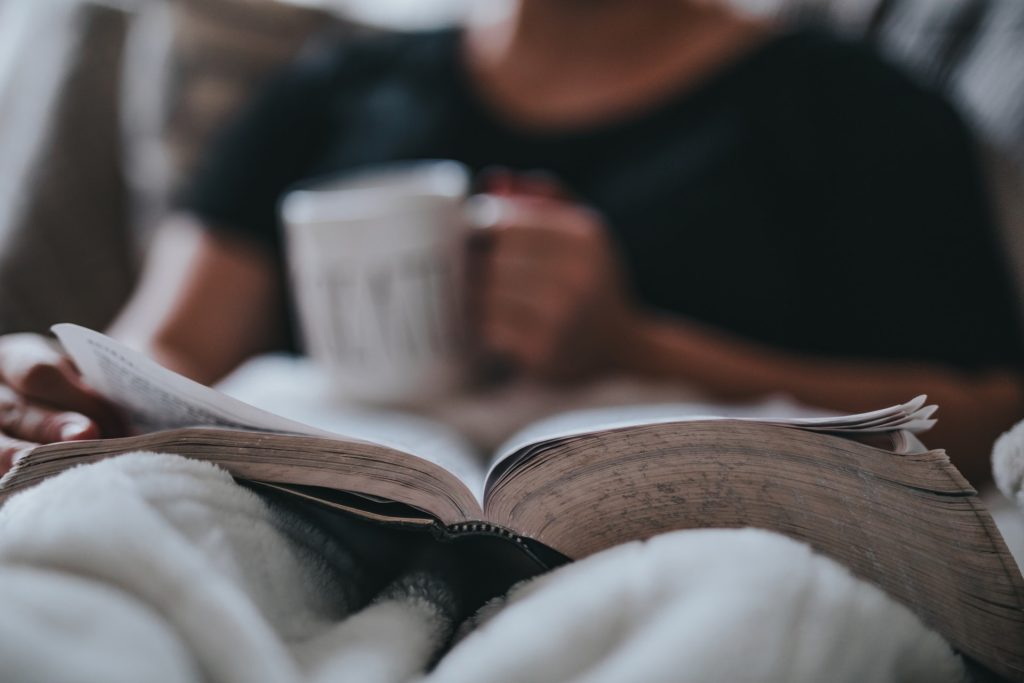If you’ve so much as opened the average internet webpage in recent years, you’ve undoubtedly come across the term “self-care.” From a Parks and Recreation GIF urging fans to “treat yo’ self” to artists like Lady Gaga and Meghan Trainor taking to the charts with feel-good songs of self-empowerment, the self-care movement owes as much to contemporary pop culture as it does to the rising stress levels and prevalent mental health concerns across the globe.
Yes, people are turning to self-indulgence as a way to unwind and relax, a need that’s all too relatable in the modern world, particularly coming out of a tumultuous 2020. But, even more so, self-care has evolved into its current state and prominence largely in part to the popular culture of recent years.
Relaxing on the Runway
At the heart of all things centered on self-care, you’ll find a focus on feeling good, releasing the tension, and easing into comfort, from the scents you breathe into the fabrics you wear. It’s that concept of comfortable fabrics that makes up a particularly notable intersection of pop culture and self-care: a luxury style that maintains the wearer’s comfort. All too often, fashion and comfort have been at odds. Seconds after the red carpet, a celebrity rushes to get out of their heels. Supermodels restrict their diets to set an unreachable standard. As the adage proclaims, “beauty is pain,” be it a too-tight dress or a scratchy layer of lace.
Alongside the growing popularity of self-care, that’s set to change. Designer Adam Lippes, for example, sets out to create fashionable styles that don’t feel the need to be trendy. As the self-proclaimed “president of the Adam [Lippes] fan club,” Courtney Sarofim puts it best, explaining “We don’t want to be dressed and uncomfortable… We want to be wearing luxurious fabrics. It’s not for the whole world to know how luxurious our fabrics are but so that we feel good, we feel comfortable.” With pieces like those that Lippes showcases at events like New York Fashion Week, women don’t have to choose between the comfort they crave and looking good. And, with these feel-good fabrics hitting the runway, that sense of comfort quickly becomes a trend in its own right.
Therapy at Our Fingertips
With household names like Demi Lovato and Michael Phelps touting the benefits of teletherapy, pop culture has helped bring self-care efforts from DIY spa days to genuine medical care. Slowly, the social taboo surrounding therapy and other mental health treatment is wearing away. You don’t need to leave the office early to make it to an appointment across town; you simply need to pull out your phone, talk to a professional, and watch your quality of life start to improve. When treatment is nearly as painless as texting a friend, it’s not just more socially acceptable—it’s more accessible, too.
A board-certified psychiatrist, Bruce Rubenstein, M.D. is well aware of these benefits, offering a private practice focused on providing teletherapy options in New York and beyond. Thanks to professionals like Dr. Rubenstein NYC patients can seek treatment from the comfort of their homes, and they often pay less than they would for a traditional appointment. As celebrities and other public figures share their personal experiences with therapy and telemedicine, there’s little doubt that self-care advocates will continue to tout the benefits of therapy and psychiatric treatment, bringing teletherapy services beyond New York City and around the world.
Influencers Offer Insights
No matter what social media platform you turn to, it won’t take long for you to find an influencer praising their new favorite self-care trend. Sometimes these recommendations are rather questionable, like the various teas that are “guaranteed” to make you skinny. But some of the other options your favorite fashion blogger promotes are harmless—and maybe even beneficial.
Consider, for example, the influencer promoting their favorite set of magnetic lashes across the web. Treating yourself to that same pair feels like a bit of self-care itself, at least in the popular sense. You work hard for your money, so why wouldn’t you put some of it towards something indulgent for yourself? More importantly, consider how enhancing your natural lashes with a bit of faux mink will make you feel. If you’re feeling less confident than you’d like, simple addition to your routine, be it faux lashes or another product, can be enough to remind you of your own beauty. By channeling your inner influencer, you can practice the ultimate self-care, reigniting your love for yourself in the process.
With Gen Z and millennials making self-care a critical part of their adult lives, it doesn’t seem like the popularity of self-care is due to waning anytime soon. Backed by Adam Lippes and other renowned designers, medical professionals, and clinical research, and even the fashion blogger whose Instagram feed sparks instant envy, self-care’s place at the height of contemporary pop culture is certainly secure. Self-care at its most accessible is simple: listening to a song that makes you want to sing along, highlighting your natural beauty, or seeking treatment for depression or other mental health issues are all great examples. When you practice self-care, you’re improving your quality of life—even if you’re doing it because the internet told you to.
